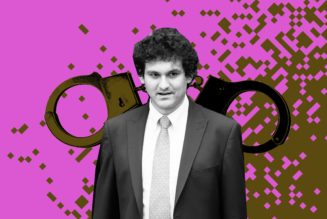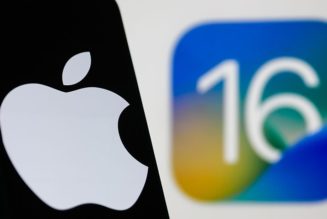
Quibi co-founder Jeffrey Katzenberg admitted he was wrong for comments he made in May blaming the entirely of the company’s failing on the coronavirus pandemic. He’s ready to accept the blame for Quibi’s collapse.
“It [wasn’t] fair,” Katzenberg told CNBC earlier today. That chat with CNBC was the first interview he and CEO Meg Whitman did after announcing Quibi was shutting down. “It was a bit of a quippy answer — a flippant answer — at the time. But other companies have faced the challenges of COVID and have managed to find a path. I think Meg and I believe in owning our miss. Simply to blame it on COVID is not fair, and not something either of us want to do.”
Both Katzenberg and Whitman clearly wanted to get one point across in that interview: this failure is ours. The two executives are now winding the company down, trying to find buyers who may be interested in both the company’s library catalog and patented Turnstyle technology, and giving investors back part of their money. Whitman added that it became increasingly clear, “for whatever reason, that Quibi was not going to be as successful as Jeffrey and I hoped.” In the end, Katzenberg said, “what we can do is own it.”
Disclosure: Vox Media is partnered with Quibi on two shows and there were once discussions for a Verge show.
Critics and analysts predicted Quibi’s failure from the company’s infancy. (Here are exactly 11 reasons why Quibi was destined to fail.) Katzenberg, Whitman, and other Quibi executives publicly waved those concerns aside. There was a “whitespace” for this kind of high-quality, short-form video that people would pay to watch — or so they thought, Whitman told CNBC.
“Over the summer we started to see a slowdown in our momentum,” Whitman said. “We took stock of where we were and said the best thing to do, the honorable thing to do, is return money to shareholders when we knew this wasn’t going to have a path forward.”
In an open letter to investors and employees, Katzenberg and Whitman said they suspected the combination of the idea’s flaws plus the pandemic was too much for Quibi. During their interview with CNBC, the two tried to explore what went wrong, and how they tried to fix it.
For example, Quibi’s price point was likely a barrier of entry for many people, Whitman said. The company introduced a free, ad-supported tier in Australia to see if that would encourage more people to sign up. While that tier had better results, Whitman said, they weren’t “good enough to keep on going.”
Katzenberg admitted he’s “very disappointed” in how it ended, and that the whole situation “hurts a lot.” “For me, I’ve got to get on that horse and find the next mountain to charge up,” Katzenberg said. “That’s the only thing I know how to do and I’ve got a lot to prove.”










